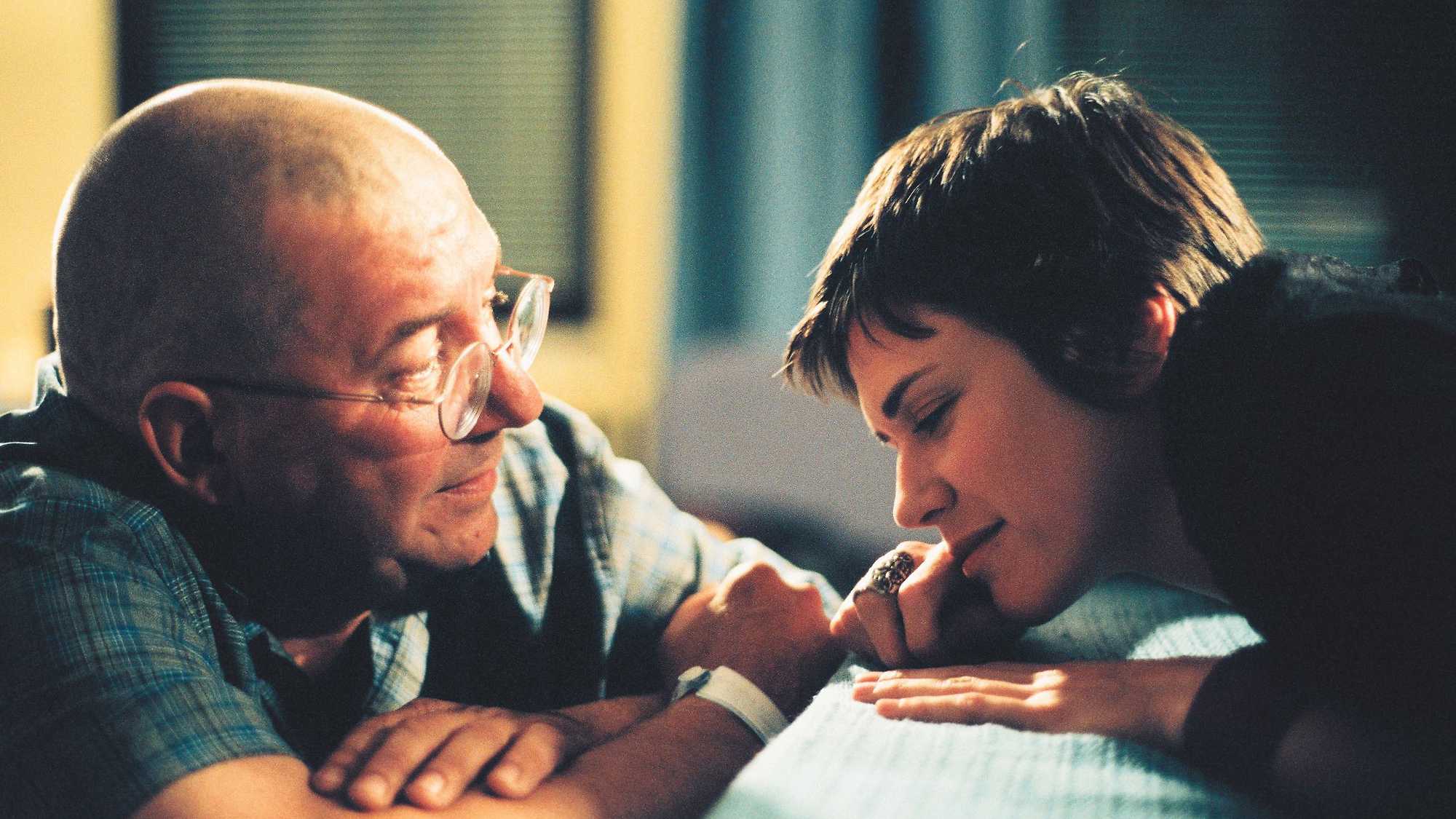
Politically incorrect, for sure, but also erudite, intelligent and entertaining at the very least.
Screened as part of NZIFF 2004
The Barbarian Invasions 2003
Les invasions barbares
Denys Arcand’s boisterous wake for 60s hedonism and tattered ideals in the uncivilised 00s, The Barbarian Invasions reunites the characters from his 1986 Decline of American Civilisation. But no acquaintance with the earlier movie is required to understand who’s who or what’s going on here.
“Rémy, serial womaniser, bon vivant and socialist, lies dying in a [Québec] hospital bed. Summoned from London, his son Sebastian (‘an ambitious capitalist prude who has never opened a book,’ according to Dad), employs his business skills to grease a few palms and upgrade his father’s healthcare… As the friends and relatives gather, the sharply written script invokes the joys of friendship while lampooning subjects ranging from the Catholic Church to American supremacist ambitions. Funniest of all is the group’s rueful listing of the political and intellectual movements they embraced and discarded over the years. Girard is outstanding as the man whose life is slipping away. With its articulate reflective stance, this is a film about death and reconciliation that feels more like a celebration of life.” — Sandra Hebron, London Film Festival
“The hospital room becomes the site of an ongoing party: sexual memories, bawdy jokes, political tirades, and regrets bang off the walls at all hours. Eventually, the entire group relocates to a house on the same lake that was the setting for Decline; as Rémy grapples with his failures and satisfactions, the movie shuts up and calms down. Arcand’s film might be called an idyll of death, and the concluding scenes, in which Rémy tries to pass something on to the next generation, are intensely moving.” — David Denby, New Yorker